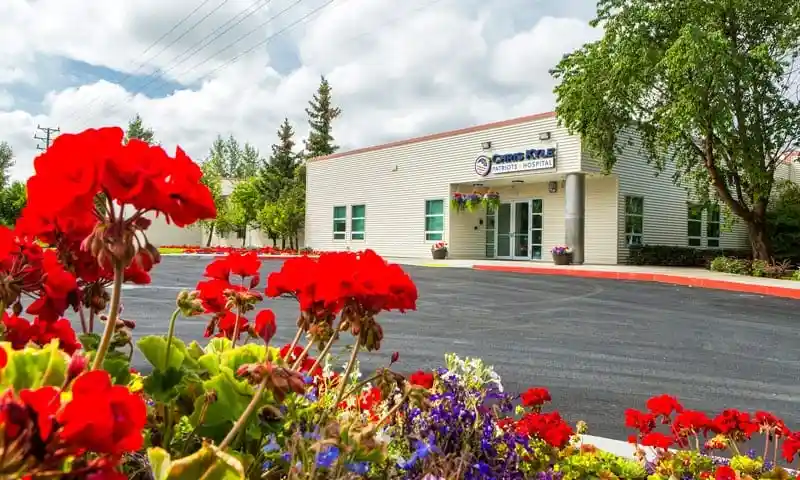






Are you or a loved one grappling with the aftermath of a traumatic event? Post-traumatic stress disorder (PTSD) can be isolating and challenging to manage. However, there is hope. With the right support and treatment, healing is possible. In this comprehensive guide, we will explore effective PTSD treatment options available in 2023, including psychotherapy techniques, medications, and complementary treatments. By understanding the causes, symptoms, and evidence-based treatment approaches, you can pave the way to recovery and regain control of your life.
PTSD, or post-traumatic stress disorder, is a psychiatric disorder that affects people who have experienced a traumatic event. It could be caused by a single incident, multiple incidents, or specific circumstances. Anyone can be susceptible to developing PTSD at any age, including combat veterans and individuals who have experienced or witnessed a traumatic experience, such as a physical or sexual assault, abuse, an accident, a disaster, or other serious events. Traumatic stress disorder ptsd is a condition that requires professional help and support for those affected.
It is crucial to recognize the symptoms of PTSD and seek help from a mental health professional to ensure the best possible recovery.

PTSD can be precipitated by a range of traumatic events, such as severe accidents, physical or sexual assault, abuse, exposure to traumatic events in the workplace, major health issues, and childbirth experiences. Additionally, having had prior traumatic experiences, particularly during childhood, may increase the likelihood of developing PTSD.
The effects of PTSD on individuals may vary, depending on the type of trauma experienced, the individual’s coping strategies, and the support available. Stress inoculation training is one of the coping strategies that can help individuals manage their PTSD symptoms.
The four categories of symptoms associated with PTSD are re-experiencing trauma, avoidance, negative thoughts, and hyperarousal. Individuals with PTSD may have intense, distressing thoughts and emotions associated with their experience that persist long after the traumatic event has concluded. They may recall the event through flashbacks or nightmares. Additionally, individuals with PTSD may abstain from situations or persons that evoke memories of the traumatic incident.
Negative thoughts are another common symptom of PTSD, which may include feelings of sadness, fear, or anger; and may lead to difficulty connecting with others. Hyperarousal is also prevalent among individuals with PTSD, causing intense negative reactions to seemingly innocuous stimuli, such as a loud noise or an inadvertent touch.
Recognizing these symptoms of mental illness and seeking help from a mental health professional is essential for recovery and healing.

Psychiatrists and other mental health professionals utilize various successful approaches when treating PTSD, such as psychotherapy and medication. Personalized care plays a critical role in PTSD treatment, as it enables mental health professionals to create treatment plans that are tailored to the individual’s needs and preferences. Evidence-based practices such as cognitive processing therapy, prolonged exposure therapy, and group therapy have been proven effective in treating PTSD.
Mental health professionals are essential to the treatment of PTSD, offering guidance and support to those affected. By working closely with a mental health professional, an individual with PTSD can better understand their condition, develop coping strategies, and engage in treatments that are best suited for their unique needs.
Personalized care in PTSD treatment involves providing an individualized approach to the treatment, taking into consideration the individual’s specific needs and symptoms. This may include the utilization of various types of therapy or medication depending on the person’s unique situation. Personalized care in PTSD treatment offers a tailored approach to treatment that is tailored to the individual’s specific needs and symptoms. This can help ensure that the treatment is effective and that the individual is able to make progress in their recovery.
For PTSD treatment, cognitive processing therapy, prolonged exposure therapy, and group therapy are some of the personalized care options that may be used. Additionally, medication and complementary treatments may be utilized to supplement the treatment plan. The advantages of personalized care for PTSD treatment are evidenced by improved outcomes, increased engagement in treatment, and enhanced quality of life.
Evidence-based practices for the treatment of PTSD include Prolonged Exposure (PE), Cognitive Processing Therapy (CPT), Trauma-focused Cognitive Behavioral Therapy (TF-CBT), and Eye Movement Desensitization and Reprocessing (EMDR). Additionally, certain medications, such as sertraline, paroxetine, fluoxetine, and venlafaxine, have been conditionally recommended for use in PTSD treatment. These treatments have all been scientifically proven to be effective in reducing PTSD symptoms and improving the overall mental health of those affected.
Prolonged Exposure (PE) is a type of cognitive-behavioral therapy that assists individuals in confronting their fears and memories related to the traumatic event. Cognitive Processing Therapy (CPT) is a form of cognitive-behavioral therapy that assists individuals in recognizing and questioning the thoughts and beliefs that are causing distress.
Trauma-focused Cognitive Behavioral Therapy (TF-CBT) and Eye Movement Desensitization and Reprocessing (EMDR) are also effective treatments for PTSD, helping individuals process and make sense of traumatic memories.
Mental health professionals are integral to the treatment of PTSD, offering psychotherapy, support, education, and guidance to those affected by PTSD and their families. Through a range of techniques, they aim to help individuals recognize and modify their distressing emotions, thoughts, and behaviors.
Regardless of the treatment option you select, it is advisable to seek assistance from a mental health professional who is knowledgeable in PTSD. This will ensure more successful results. When selecting a mental health professional to treat PTSD, it is essential to assess their expertise and credentials. Additionally, it is beneficial to find someone who is comfortable talking about the condition and who is willing to collaborate with you to devise a tailored treatment plan.
The primary treatments for individuals with PTSD are short-term psychotherapies, including cognitive processing therapy, prolonged exposure therapy, and group therapy. These evidence-based practices have been shown to be effective in treating PTSD and are often used in conjunction with medication to manage symptoms and enhance overall well-being.
By understanding the various psychotherapy techniques available, individuals with PTSD can better determine which treatment approach is best suited to their unique needs and circumstances. Cognitive processing therapy is a type of cognitive-behavioral therapy (CBT) that assists individuals with PTSD in recognizing and questioning irrational thoughts and beliefs related to their trauma. Prolonged exposure therapy is a type of cognitive-behavioral therapy (CBT) that assists individuals with PTSD in confronting their fears and developing strategies to manage their reactions to them. Group therapy provides an opportunity to connect with others who are also dealing with similar experiences and offers a supportive environment in which to share and learn from one another.

Cognitive Processing Therapy (CPT) is a type of cognitive therapy that assists individuals with PTSD to recognize, comprehend, and alter their thought and behavior patterns. By helping individuals identify and challenge their unhelpful thoughts and beliefs, CPT can lead to a reduction in PTSD symptoms, such as intrusive thoughts, avoidance, and hyperarousal.
CBT treatments typically last between 12 and 16 weeks. Research has demonstrated that CBT is effective in mitigating symptoms of PTSD, including intrusive thoughts, avoidance, and hyperarousal.
By working closely with a mental health professional trained in CBT, individuals with PTSD can make significant progress in their recovery and regain control of their lives.
Prolonged exposure therapy is a form of cognitive behavioral therapy that has been demonstrated to be effective in treating PTSD. This approach involves gradually facing trauma-related memories and has been observed to significantly reduce symptoms of PTSD, depression, anger, and anxiety in individuals who have experienced trauma. Prolonged exposure therapy is comprised of four components: education about PTSD and PE, breathing retraining, in-vivo exposure, and imaginal exposure.
Research has demonstrated that prolonged exposure therapy can significantly reduce symptoms of PTSD, depression, anger, and anxiety in trauma survivors. By engaging in prolonged exposure therapy with a mental health professional trained in this approach, individuals with PTSD can confront their fears, develop coping strategies, and ultimately reduce the impact of their traumatic experiences on their daily lives.

Group therapy is a form of psychotherapy, including talk therapy, in which one or more therapists work with a group of individuals to address various mental health conditions, such as PTSD. The aim is to create a sense of connection and understanding through shared experiences, providing an environment where individuals can offer support and learn from one another.
Participants in peer support groups can benefit from exchanging experiences and emotions with those who have had similar experiences. Group therapy is an effective form of psychotherapy for individuals with PTSD, providing the benefit of peer support and the advantage of connecting with others going through similar experiences.
By participating in group therapy, individuals with PTSD can gain valuable insights and coping strategies from their peers, while also providing support and encouragement to others in the group.
In addition to psychotherapy techniques, medications and complementary treatments can also play a significant role in managing PTSD symptoms and enhancing overall well-being. Medication can be beneficial in managing the symptoms of PTSD, thus allowing individuals to engage more actively in psychotherapy. By working closely with a mental health professional, individuals with PTSD can determine the most suitable medication and complementary treatments for their unique needs and circumstances.
Complementary treatments, such as acupuncture, meditation, and yoga, have also been shown to be effective in helping individuals with PTSD manage their symptoms and improve their overall mental health. These alternative therapies can be used in conjunction with traditional treatments, such as psychotherapy and medication, to provide a comprehensive and holistic approach to PTSD treatment.

Selective serotonin reuptake inhibitors (SSRIs) like sertraline, paroxetine, fluoxetine, and venlafaxine are commonly employed for PTSD treatment. These medications act by increasing levels of the brain chemical serotonin, which oversees mood, appetite, and sleep.
Common medications used to treat PTSD include antidepressants such as SSRIs and SNRIs, which are typically used to address the core symptoms of PTSD, as well as other medications that may be employed to reduce anxiety and physical agitation, or to address nightmares and sleep problems.
The medications used to treat PTSD can assist in diminishing symptoms such as anxiety, depression, and intrusive thoughts. They may also aid in improving sleep, concentration, and overall functioning. However, it is important to note that these medications can also cause side effects, such as nausea, headache, insomnia, and sexual dysfunction.
It is essential to work closely with a mental health professional and consult the mental health services administration to determine the most appropriate medication and monitor any potential side effects.
Acupuncture, meditation, and yoga are commonly used complementary treatments for PTSD. Acupuncture is a form of traditional Chinese medicine which involves the insertion of thin needles into specific points on the body to stimulate energy flow. Studies have demonstrated that acupuncture is effective in reducing symptoms of PTSD, including anxiety, depression, and insomnia.
Meditation is a practice which focuses the mind on a particular object, thought, or activity in order to achieve a mentally clear and emotionally tranquil state. Research has suggested that it can be effective in decreasing symptoms of PTSD, including intrusive thoughts, flashbacks, and hyperarousal.
Yoga is a physical exercise that combines stretching, breathing, and relaxation techniques. Studies have demonstrated that it can be beneficial in mitigating symptoms of PTSD, such as stress, anxiety, and depression.
By incorporating complementary treatments into their overall treatment plan, individuals with PTSD can enhance their healing process and improve their overall well-being.

Accessing mental health services and finding the right treatment provider for PTSD can be a daunting task. However, with the right guidance and support, individuals with PTSD can successfully navigate the mental health system and find the help they need. When selecting a mental health professional to treat PTSD, it is essential to assess their expertise and credentials. Additionally, it is beneficial to find someone who is comfortable talking about the condition and who is willing to collaborate with you to devise a tailored treatment plan.
Various psychological therapies, such as cognitive processing therapy, prolonged exposure therapy, eye movement desensitization and reprocessing, and trauma-focused cognitive behavioral therapy, are available for the treatment of PTSD. Additionally, medications such as sertraline, paroxetine, fluoxetine, and venlafaxine may be prescribed. Both inpatient and outpatient programs are available, allowing individuals with PTSD to choose the treatment setting that best suits their needs and preferences.
The best way to locate a mental health professional for PTSD treatment is to obtain referrals from a doctor or insurance provider, search online directories, or contact a mental health organization. It is recommended to seek assistance from a mental health professional with expertise in treating PTSD, such as a psychiatrist, psychologist, or clinical social worker.
When evaluating treatment providers, it is essential to assess their experience, qualifications, and treatment approach. Additionally, verifying that the provider is licensed and insured is paramount.
Potential resources for locating a mental health professional include online directories, referrals from physicians or insurance providers, and mental health organizations.
When evaluating mental health professionals for PTSD treatment, factors such as experience, training, success rates, and the application of evidence-based treatments such as cognitive behavioral therapy (CBT) and prolonged exposure (PE) may be taken into consideration. Mental health professionals treating PTSD should possess familiarity with the diagnosis and treatment of PTSD, as well as familiarity with evidence-based treatments such as cognitive behavioral therapy (CBT) and prolonged exposure (PE).
It is essential to consider the number of patients they have treated, the duration of their practice, and the effectiveness of the evidence-based treatments they employ when assessing the efficacy of mental health professionals treating PTSD. By carefully evaluating treatment providers and selecting a mental health professional with the appropriate expertise and experience, individuals with PTSD can increase their chances of finding the most effective treatment for their unique needs.
Family and friends play a crucial role in supporting a loved one with PTSD. To provide the best possible support, it is essential to give them the opportunity to discuss their experiences at their own speed, accept their feelings of distress regarding the trauma, avoid making assumptions about their emotions, provide reassurance, and consider cognitive and exposure therapy as potential treatment options.
It is also important to be mindful of the potential emotional impact that hearing about the trauma may have on you and to seek support for yourself if needed.

Gaining insight into the difficulties experienced by a loved one with PTSD can be achieved by becoming familiar with the symptoms and triggers of PTSD, being supportive and patient, and educating yourself on the subject. By understanding the challenges faced by individuals with PTSD, you can be better equipped to offer empathy, encouragement, and practical assistance when needed.
Indications of PTSD may include flashbacks, nightmares, difficulty sleeping, difficulty concentrating, irritability, and feeling on edge. Stimuli associated with PTSD could include reminders of the traumatic event, such as certain smells, sounds, or sights. By being aware of these symptoms and triggers, you can help create a safe and supportive environment for your loved one to heal and recover.
Offering social support, listening with understanding and without criticism, establishing a secure atmosphere, gaining knowledge about PTSD, and being tolerant are some approaches to provide emotional support to a loved one with PTSD.
By being present, patient, and understanding, you can help your loved one navigate the challenges of PTSD and provide a strong foundation for their recovery journey.
Throughout this guide, we have explored the causes and symptoms of PTSD, as well as the various treatment options available in 2023. By understanding the principles behind effective PTSD treatment, such as personalized care, evidence-based practices, and the involvement of mental health professionals, individuals with PTSD can regain control of their lives and move forward on the path of healing. Supporting a loved one with PTSD requires empathy, understanding, and patience, but with the right resources and guidance, recovery is possible.
The most effective treatment for PTSD is a combination of therapy, medications, and lifestyle changes. This can include cognitive behavioral therapy (CBT), antidepressant medications, mindfulness exercises, relaxation techniques, support groups, and other forms of psychotherapy. Each person’s treatment will be customized based on their unique needs and symptoms.
For individuals with PTSD, the best treatment option is likely a combination of psychological therapy and medication. Common therapies used to treat PTSD are Cognitive Behavioral Therapy (CBT) and Eye Movement Desensitization and Reprocessing (EMDR). Medications such as SSRIs and SNRIs can also help reduce the symptoms of PTSD.
The best treatment for PTSD is a tailored combination of psychotherapy, such as Cognitive Behavioral Therapy (CBT) or Eye Movement Desensitization and Reprocessing (EMDR), combined with medications like SSRIs or SNRIs, lifestyle changes, and supportive strategies. With this comprehensive approach, individuals can address the symptoms of PTSD and work towards recovery.
Calming PTSD triggers can be achieved by practicing deep breathing exercises, using expressive writing to process feelings, and grounding techniques to stay focused on the present moment. It is also helpful to become familiar with one’s triggers, seek support from loved ones and professionals, give yourself time for recovery, and practice good self-care habits such as proper nutrition and exercise.
Developing healthy coping strategies is essential for managing PTSD symptoms. This includes learning how to recognize and manage triggers, developing healthy communication skills, and engaging in activities that bring joy and relaxation. It is also important to practice self-compassion.
To manage flashbacks from PTSD, it is important to remind yourself that the traumatic event has passed and is no longer happening. Practicing deep breathing, using your five senses to help stay present, and carrying objects or doing activities that make you feel secure can all be helpful in managing the distress of a flashback.
These techniques can help you stay grounded in the present moment and remind yourself that the flashback is not real. It is important to remember that flashbacks are a normal part of PTSD and that they will pass.
Three unhealthy coping skills for PTSD include avoidance of triggers, self-medication with drugs and alcohol, and negative thinking patterns.
These can all be damaging to mental health and should be avoided as much as possible.
The core principles of effective PTSD treatment include focusing on the individual needs of the patient, utilizing evidence-based practices, and providing comprehensive care by mental health professionals.